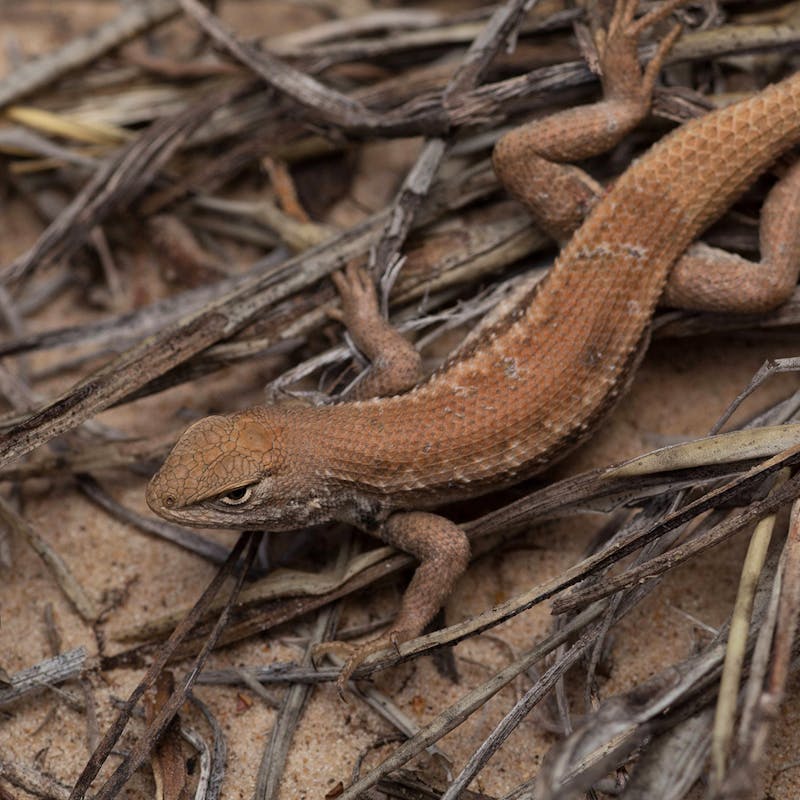Tweet“Like too many other species, this little imperiled lizard found itself in the middle of a very large fight over what should have been reliance on best available science and not pressures from private interests. Accepting the need to list the species is a huge step forward for getting the dunes sagebrush lizard on the road to recovery and for the Endangered Species Act, our greatest tool for preventing extinction and promoting coexistence between us and nature.”
In a tumultuous and long-awaited win, today the Fish and Wildlife Service proposed listing the dunes sagebrush lizard as endangered under the Endangered Species Act.
“Like too many other species, this little imperiled lizard found itself in the middle of a very large fight over what should have been reliance on best available science and not pressures from private interests,” said Andrew Carter, director of Conservation Policy for Defenders of Wildlife. “Accepting the need to list the species is a huge step forward for getting the dunes sagebrush lizard on the road to recovery and for the Endangered Species Act, our greatest tool for preventing extinction and promoting coexistence between us and nature.”
This announcement comes after years of litigation and advocacy from Defenders of Wildlife and our partner organizations who petitioned for the listing back in 2018. The lizard was first identified as needing Endangered Species Act protections back in 1982 and first proposed for listing in 2010. However, political pressure from the oil and gas industry prevented that much-needed step from moving forward.
Instead, the Fish and Wildlife Service withdrew its original proposal and relied on voluntary conservation plans. Many of these plans lacked sufficient rigor or enrollment to adequately protect the lizard.
For example, in 2012, the Service withdrew its proposed ruling in large part on the basis of a voluntary conservation plan created by the state of Texas. Texas would later withdraw that plan due to its failure to adequately conserve the species. After refusing to approve a revised version of the state’s plan, the Service instead endorsed industry-led conservation plans that entirely failed to stop and reverse the lizard’s decline.
Dunes sagebrush lizards are found only in the Permian Basin in West Texas and southeastern New Mexico, a major onshore oil and gas field, and have historically possessed the second-smallest range of any North American lizard.
Unfortunately, this unique lizard has faced habitat loss at alarming levels due to fossil fuel development and sand mining as well as herbicide spraying from ranching operations. The dunes sagebrush lizard relies on shinnery oak sand duneland and is particularly susceptible to habitat fragmentation due to its narrow range.
For over 75 years, Defenders of Wildlife has remained dedicated to protecting all native animals and plants in their natural communities. With a nationwide network of nearly 2.1 million members and supporters, Defenders of Wildlife is a leading advocate for innovative solutions to safeguard our wildlife for generations to come. To learn more, please visit https://defenders.org/newsroom or follow us on X @Defenders.
News

Study Led by Defenders of Wildlife Scientist Shows Noise Pollution Impacts on Migratory Birds



